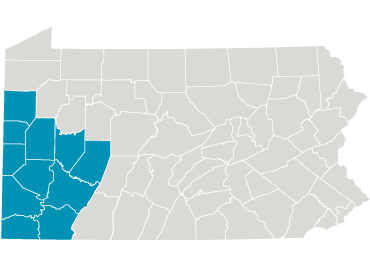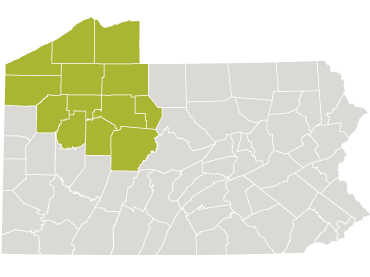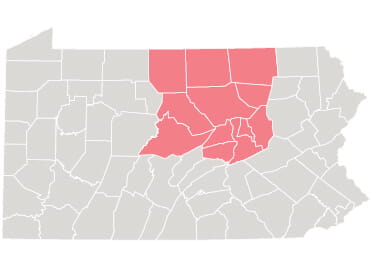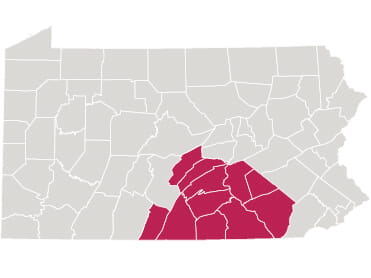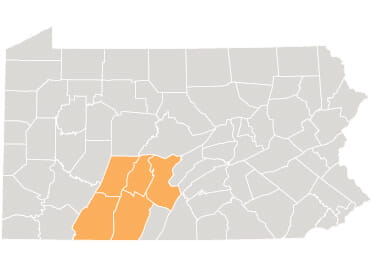After retiring from his job as an engineer in January 2022, Ron decided to begin a fitness regimen.
He began going to a gym near his house with his wife and working out "pretty regularly and pretty vigorously." Although it involved some cardio, Ron mostly was lifting heavy weights with high numbers of repetitions.
During one of those workouts in July, he began to feel discomfort — so much so that he had to stop.
"It felt like somebody put their hands around my throat and was choking me," Ron says.
The feeling passed after a while. But after he and his wife returned home, the discomfort continued to grow worse. Ron's wife, a nurse coordinator, called 911, and the ambulance took Ron to the UPMC East emergency department.
After running various tests, doctors still weren't sure what was causing Ron's pain. What began as a feeling like indigestion progressed to increasing pain in his lower abdomen. Then, Ron had a CT scan, which revealed the problem: a 1-inch tear in the lining of his ascending aorta.
"It was a fire drill from that point on," Ron says. He would need to be taken by helicopter to UPMC Shadyside for emergency open heart surgery to repair the aortic dissection.
Ron, who was 69 years old at the time, says he felt very anxious because he knew his condition was serious.
"I knew that making it through this was not a given, that I might not come out of this alive," he says. "And so I kind of made my peace with God on the way to Shadyside. Basically, 'I know I might not make it. This is your call. My life is in your hands.'"
After Ron arrived at the hospital, he was rushed to surgery. Ibrahim Sultan, MD, chief of the Division of Cardiac Surgery, was on call and performed Ron's procedure.
Dr. Sultan repaired the tear in Ron's aorta, and Ron woke up feeling much better. Within hours of waking up, he was sitting up in the cardiac critical care unit watching a baseball game.
Ron spent 5 1/2 days in the hospital before returning home with a new lease on life. He finally had the chance to thank Dr. Sultan at his first follow-up appointment after the surgery.
"When he came into the room, I got off the table, walked over and shook his hand, and thanked him for saving my life," Ron says. "Because that's exactly what he did."
Although Ron knew his condition was serious, he didn't realize how serious at first. Tears in the aorta like his carry a high mortality rate.
"I felt extremely lucky to be walking, talking, and breathing," he says.
Dr. Sultan eventually cleared Ron to return to the gym, with one caveat. Whereas before Ron was lifting more than 200 pounds, he is now limited to 50 pounds. He also makes sure to do cardio work at the gym, and he takes a lot of walks with his wife.
Ron says he's thankful for the care he received throughout the process — from Dr. Sultan's lifesaving work to the staff in the hospital after his surgery. He says they treated him like family.
"I'm pretty lucky," Ron says. "You talk about all of the stars lining up right. I had friends tell me afterwards that if you needed heart surgery, Shadyside was the place to go. And I also found out after the fact that Dr. Sultan was probably the best surgeon I could have perform this type of surgery."
At UPMC, Life Changing Medicine means lifesaving care when called upon.
Find Care Near You


















